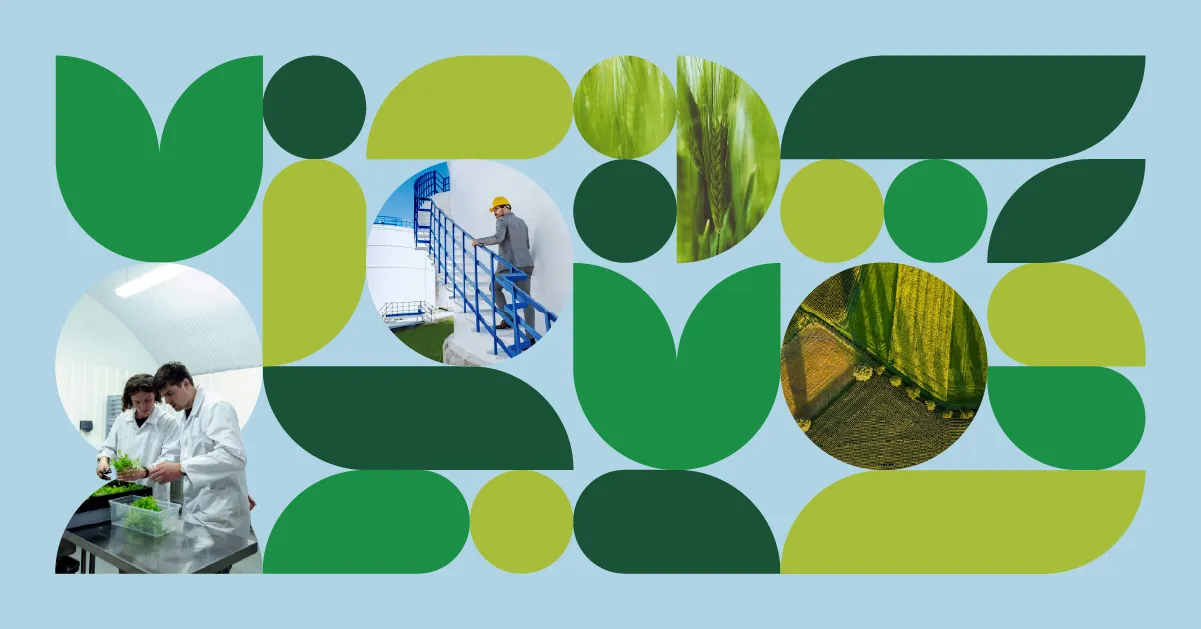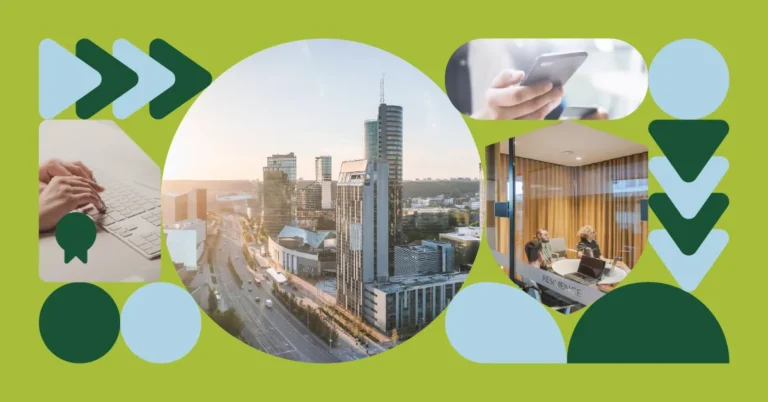Lithuania’s bioeconomy sector is steadily developing as an important player in Europe, integrating biotechnology, sustainable agriculture, and circular economy principles to create innovative solutions for global challenges. The combination of strong governmental support, a highly skilled workforce, and an expanding ecosystem of pioneering companies creates a compelling proposition for bioeconomy investment in Lithuania.
Rich natural resources for bioeconomy development
Investing in Lithuania’s bioeconomy means leveraging the country’s abundant natural resources, where 52% of land is dedicated to agriculture and 33.5% is forested. As the EU’s 4th largest wheat exporter, Lithuania serves as a reliable and stable raw material provider to global markets including Spain, Norway, Saudi Arabia, and Nigeria. Sustainable agriculture in Lithuania is evidenced by consistent production growth, with crop yields showing an impressive 13.5% annual increase in recent years. The sector is further strengthened by €18 billion invested in local agriculture technology and sustainable practices since 2004, resulting in modernized farming methods, increased yield stability, and enhanced production efficiency across the agricultural value chain.
Key sectors driving Lithuania’s bioeconomy
Circular economy innovations in Lithuania encompass several rapidly developing sectors:
- AgriTech and Biomass Utilization: Agriculture contributes 3.5% to Lithuania’s GDP, with a grain self-sufficiency rate of 313%. In 2023, 71% of the grain harvest was exported, positioning Lithuania as a key player in European agricultural production. Crops like versatile grains and high-potential beans are helping drive exports, supported by AgriTech innovation, government incentives, and growing demand.
- Sustainable Biomanufacturing: Companies like Roquette Amilina exemplify Lithuania’s biorefining capabilities, using 100% sustainably certified, locally sourced wheat to produce bio-based ingredients including starch, gluten, and wheat proteins used across food, pharmaceutical, and animal feed industries.
- Alternative Foods: Lithuania’s bioeconomy startup scene is experiencing significant growth, particularly in plant-based foods and alternative proteins derived from insects, cells, and fungi.
Divaks, specializing in yellow mealworm-based ingredients, produces high-protein, eco-friendly alternatives for the food industry.
- Waste Management and Bioenergy: Lithuanian companies are pioneering sustainable waste-to-value solutions that form a critical component of Lithuania’s bioeconomy landscape. Companies like Tube Green utilize side waste from bioethanol manufacturing to produce biogas, while Green Genius enhances sustainability through innovative renewable energy and waste-to-energy projects.
Strong R&D and innovation ecosystem
Lithuania’s bioeconomy success is built on a 200-year legacy in life sciences, from the publication of “Theory of Organic Beings” at Vilnius University in 1800 to the establishment of the Institute of Applied Enzymology in 1975. This foundation attracted global players like
Teva and Thermo Fisher Scientific in the early 2000s. Today, this innovation continues with the €7 billion Biocity campus, which will include a Gene Therapy Centre, Microbial Production Centres, and a Biotechnology Innovation Centre by 2030, further strengthening bio-based industries in the Baltics.
The collaboration between Lithuania’s research institutions and industry creates a powerful innovation engine, with universities like Vilnius University Life Sciences Center conducting fundamental research in biochemistry, biotechnology, and molecular biology, while Kaunas University of Technology focuses on applied research in environmental engineering, food sciences, and materials development.
This robust R&D infrastructure is powered by exceptional talent, with Lithuania offering investors access to a workforce characterized by diversity (ranking 1st in the EU with 64% of science and technology employees being women), high education levels, and multilingual abilities. Approximately 30,000 professionals work in scientific research and experimental development, while 130,000 students in higher education and 39% of graduates specializing in STEM fields ensure a continuous pipeline of qualified specialists for circular economy innovations in Lithuania.
Governmental Support and Incentives
A robust framework of incentives applies for bioeconomy investment in Lithuania. The InvestLT+ scheme offers cashback for investments in long-term assets or salaries, with evaluation based on job creation, project complexity, and technology use. Specialized alternative schemes support biofuel and biogas initiatives, complementing the country’s network of seven Free Economic Zones where businesses enjoy 0% corporate profit tax for 10 years and 8% for the following 6 years.
Lithuania’s Green Corridor for bioeconomy investments provides 0% corporate tax for 20 years and streamlined procedures for land acquisition, planning, and migration. Manufacturing projects with €20 million minimum CAPEX creating at least 20 jobs qualify for this exceptional support, which includes dedicated assistance from the Lithuanian Ministry of the Economy and Innovation throughout the investment journey.
The unique mixture of natural resources, innovation ecosystem, talent pool, and supportive policies make an ideal environment for bioeconomy investment in Lithuania, positioning the country as a key player in Europe’s sustainable future.












